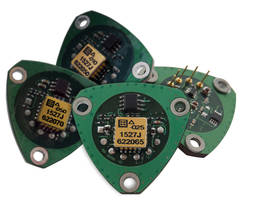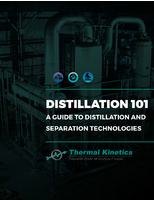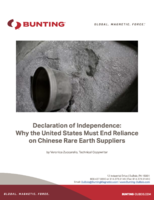Model 2227 MEMS Inertial Accelerometer Series Adds New G-ranges and End-user Enhancements Offered in Both +/-10 G and +/-50 G Ranges
Press Release Summary:

- Combines two capacitive silicon sense elements and a precision, custom CMOS integrated circuit
- Include a built-in adjustable scaling factor that allows an end-user to achieve better accelerometer voltage output flexibility, at any specified g-range
- Allows achieve necessary low-noise, high-stability, long-term repeatability and low power for today’s inertial navigation applications
Original Press Release:
Silicon Designs Adds New G-ranges, End-user Features to Lower-cost MEMS Inertial Accelerometer Family
April 5, 2019 – Kirkland, Washington, USA - Silicon Designs, Inc. (www.SiliconDesigns.com), an ISO9001:2015 certified, 100% U.S. veteran-owned leading designer and manufacturer of rugged industrial-grade MEMS capacitive accelerometer chips, modules, and supporting data acquisition, today announced that additional new g-ranges and end-user enhancements have been added to its Model 2227 MEMS inertial accelerometer series.
Initially launched in October 2018 as a strictly ±25-g product, the Series is now offered in both ±10 g and ±50 g ranges, respectively. Stock quantities of all three models are immediately available for customer shipment.
In addition to its direct drop-in replacement compatibilities, in terms of industry-standard form factor and pin configuration, with traditional quartz inertial accelerometers, Model 2227 Series units now include a built-in adjustable scaling factor. The scaling factor allows an end-user to achieve greater accelerometer voltage output flexibility, at any specified g-range, of as much as 25%.
Overall design of the Silicon Designs rugged Model 2227 Series combines two patented capacitive silicon sense elements (U.S. Patent Number 4,736,629) and a precision, custom CMOS integrated circuit. The elements and circuit are housed together within a compact, low mass, hermetically sealed LCC package. Modules are assembled on a high-temperature open printed circuit board (PCB) with a circuit that converts the MEMS accelerometer differential output voltage into a level of current directly proportional to the amount of applied acceleration. The resulting design allows the Series to achieve the necessary low-noise, high-stability, long-term repeatability and low power for today’s inertial navigation applications, at a competitive price point. Final testing is conducted on a temperature-tumble-system, ensuring thermal calibration parameters that simplify accelerometer use with the customer’s own real-time temperature compensation and modeling software.
Founded in 1983, Silicon Designs has built a strong industry pedigree for excellence in MEMS capacitive accelerometers for zero-to-medium frequency instrumentation requirements. From its earliest days, then-developing accelerometers for the U.S. Navy under a Small Business Innovation Research (SBIR) grant award, Silicon Designs has long centered its R&D efforts around continuous design and quality improvement initiatives. At the time of its founding, industrial-grade accelerometers were bulky, fragile and costly. The engineering team at Silicon Designs listened to the needs of customers who required more compact, sensitive, rugged and reasonably priced MEMS capacitive accelerometer modules and chips with higher performance. Resulting product lines were designed and built by Silicon Designs to exceed customer expectations. The company has continued to grow steadily over the years, with its business philosophies of “make it better, stronger, smaller and less expensive” and “let the customer drive R&D” remaining consistent to this day. For more information about the Model 2227 Series, visit www.SiliconDesigns.com/2227.
Link to Product Page: https://www.silicondesigns.com/2227
PR Author/Advertising & Editorial Inquiries:
Ms. Molly Bakewell Chamberlin
President & Principal Consultant
Embassy Global, LLC
Tel: +1-800-309-6150




